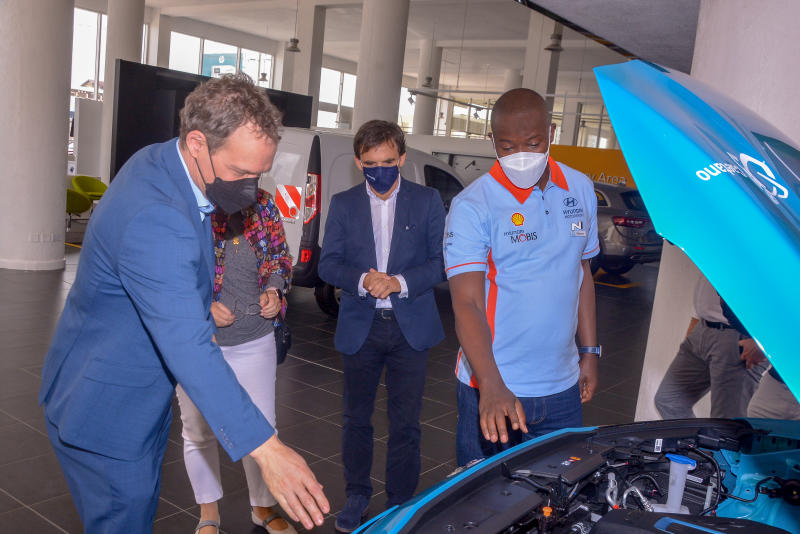×
The Standard e-Paper
Kenya’s Boldest Voice

Silvanus Wambua (right), Sales Manager at Caetano Kenya explains some of the features of the Hyundai Kona to Jorge Costa, Group Chief Operations Officer Salvador Caetano Africa (centre) and Pedro Campos, Managing Director Caetano Kenya (left). [Courtesy]
Electric vehicle manufacturers are asking the government to introduce tax incentives aimed at easing the cost of owning and operating electric vehicles in Kenya.